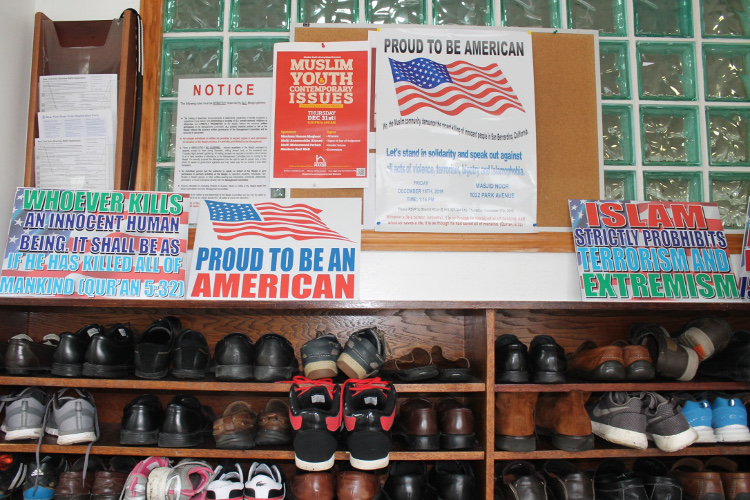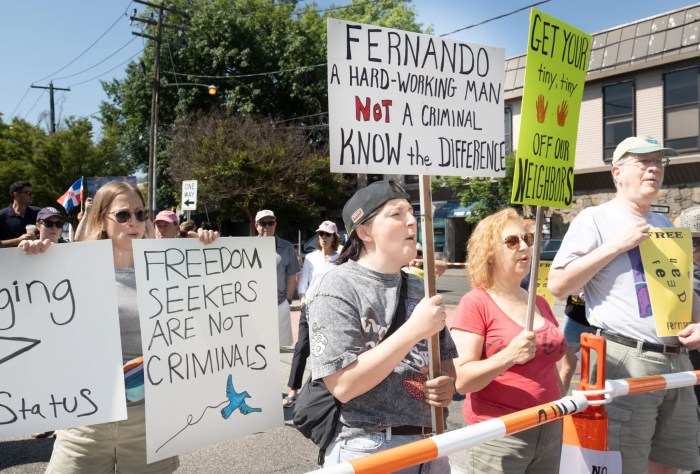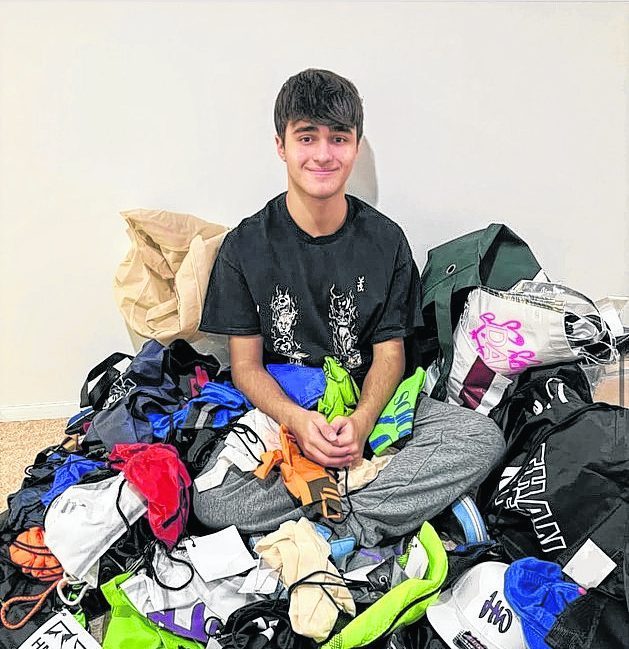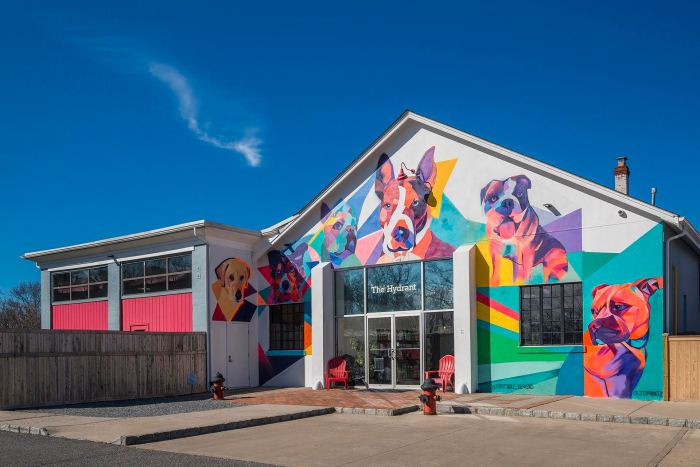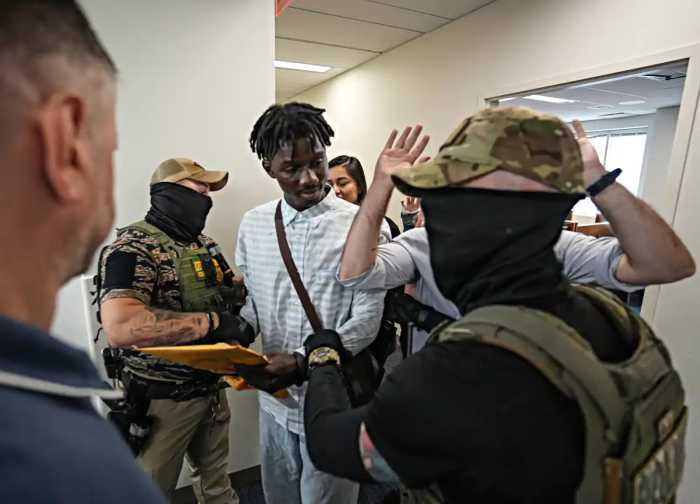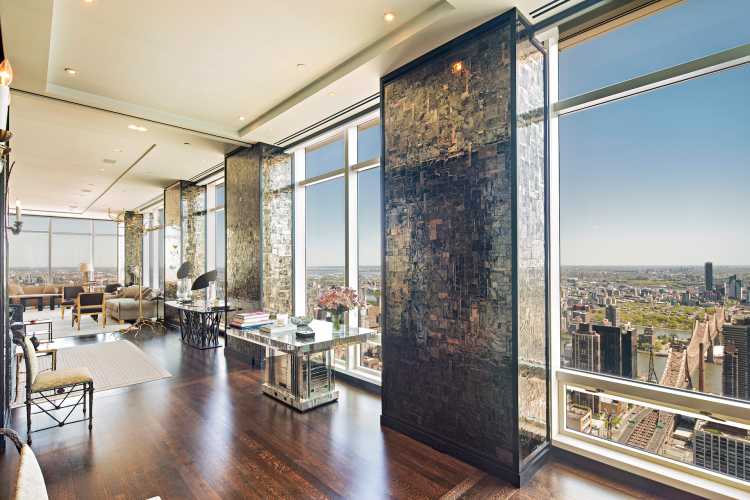Hate crimes against Muslims in the United States spiked significantly last year to a rate not seen since the aftermath of the Sept. 11, 2001 attacks, according to the FBI’s annual hate crimes report released this week.
Nationwide, anti-Muslim hate crimes jumped 67 percent in 2015 compared to the prior year—a rise from 154 in 2014 to 257 last year. The uptick in hate crimes quintupled from the previous year-to-year spike of 14 percent. The stats don’t take into account the recent spate of bias incidents reported after the election, including some in New York.
“The year 2015 saw a great deal of news about Islamist attacks in Europe and in the United States, and the exploitation of these attacks by right-wing media and political figures very likely fueled anti-Muslim hatred,” said Mark Potok, senior fellow at the Southern Poverty Law Center (SPLC), which tracks hate organizations in the US.
Locally, Nassau County police reported 32 hate crimes and Suffolk County police reported 66 such incidents last year. In both counties, the far majority of crimes were characterized as religiously motivated, but it’s not clear which groups were targeted. Freeport and Port Washington, the only two village police departments to provide data to the FBI, reported five combined incidents.
Hate crimes targeting Muslims haven’t been this high since 2001. Following the Sept. 11 attacks the FBI reported 487 anti-Muslim hate crimes across the country.
The FBI did not speculate why there was such a serious increase in hate crimes toward Muslims. Instead, the agency has left it up to activists and academia to interpret the numbers. They have reportedly linked the stark rise to the divisive presidential election campaign and now-President-elect Donald Trump’s call for a Muslim ban late last year following terror attacks in Paris and San Bernardino, Calif., which killed scores of people.
In its report, the FBI highlighted the arrest of a Florida man who later pleaded guilty to threatening to firebomb a Florida mosque and shoot its congregants.
“I don’t care if they’re [expletive] 2 years old or 100,” he said in a voicemail message left with the mosque.
Muslim Americans were not the only community impacted by an apparent rise in hate-filled attacks. Anti-Jewish attacks were up 9 percent, hate crimes against blacks increased by nearly 8 percent and anti-LGBT inspired hate crimes ticked up 5 percent, according to the FBI’s stats.
Hate crimes against Jews accounted for the largest overall number of hate crimes reported last year—half the 1,354 religious bias offenses reported to the FBI.
“Hate crimes like these can have a devastating impact upon the communities where they occur,” the FBI said in its announcement releasing the annual report.
In total, the FBI was notified of more than 5,000 hate incidents from 14,997 law enforcement agencies across the country shared through the agency’s Uniform Crime Reporting Program.
Of the 7,121 victims, the FBI said that 59 percent were targeted because of their race, ethnicity or ancestry; 19-percent because of religious bias; and 17 percent because of sexual orientation.
The report is not a full representation of hate crimes because not all law enforcement agencies share their data with the agency. SPLC believes the number of FBI-reported hate crimes is far too low, claiming the actual number is in the hundreds of thousands.
The disturbing increase in anti-Muslim hate crimes comes as no surprise considering the number of hate crimes advocacy groups have been tracking. Between 2014 and 2015, the Council on American-Islamic Relations (CAIR) found that the number of mosque attacks quadrupled from 20 to 78. Nearly half of those incidents occurred in November and December last year—the same period when people were brutally killed in Paris and San Bernardino.
“The presidential election, combined with a couple of incidents last year, without a doubt in my mind fuel that spike that we saw,” Corey Saylor, director of the Department to Monitor and Combat Islamophobia at CAIR, told the Press.
Following the slayings at the Charlie Hebdo magazine office in Paris last January, CAIR found a half-dozen attacks targeting US mosques. That number nearly tripled after a husband-and-wife duo killed 14 people last December inside a San Bernardino office, Saylor said.
During that period, then-candidate Trump called for a temporary ban of all Muslims coming to the US. He was not the only Republican in the presidential race to question the patriotism and motives of Muslims: Ben Carson said Muslims should not be eligible to run for president, and former Florida Gov. Jeb Bush and Sen. Ted Cruz (R-TX) suggested a religious test for Syrian refugees trying to enter this country.
Some Long Island Muslims have expressed concern about Islamophobia in America, noting that the climate over the last year has been worse than the days following 9/11. Many congregants of at least one mosque chose to stay home after the Orlando nightclub massacre in June. A Suffolk County Muslim leader said his mosque cancelled a bake sale out of concern for the young girls in the congregation.
Although the 2016 election has ended, some groups, particularly immigrants, have not enjoyed a reprieve that they hoped would come.
SPLC said it has recorded at least 315 incidents of “hateful harassment and intimidation” in the week since Nov. 8.
In Georgia, a Muslim high school teacher said she received an anonymous letter in which the cruel author suggested she hang herself by her Hijab—a traditional Muslim head cover. The ominous letter was signed “America!”
“As a Muslim, I wear a headscarf as a practice of my faith,” the teacher wrote in a Facebook message accompanying a photo of the letter. “I want to share this to raise awareness about the reality and climate of our community. Spreading hate isn’t going to ‘make America great again.'”
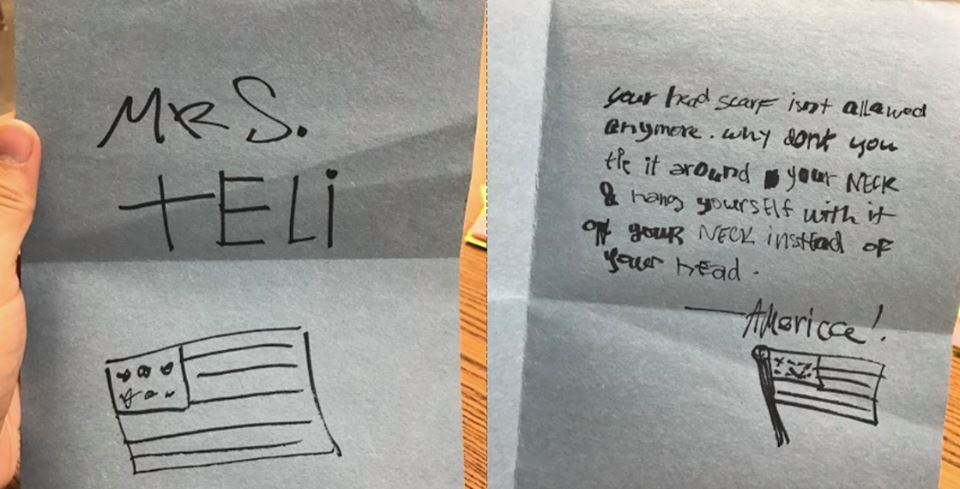
A Muslim student attending San Diego State University told police that two men who remarked about Trump and her religion robbed her on campus. Additionally, Muslim students at New York University were greeted with the world “Trump” written on the door of their Muslim prayer room on the morning after the election, according to the NYU Muslim Students Association.
“We awoke on November 9th to a chilling wakeup call.” “Trump” scrawled on Muslim prayer room at NYU : pic.twitter.com/7od6WHD7FV
— Sam Kestenbaum (@skestenbaum) November 9, 2016
Muslims are not alone. A black student at Baylor University was shoved and called a racial slur by a male student who said: “I’m just trying to make America great again,” a reference to Trump’s campaign slogan.
“He sort of shoved me off the sidewalk and he said . . . ‘no n—–s allowed on the sidewalk,’” she wrote on social media, according to The Washington Post.
In response, several hundred of her fellow students accompanied the student on her walk to class in a show of solidarity.
There have been a slew of reports of anti-Semitic and other racially motivated crimes since the election. New York Gov. Andrew Cuomo has ordered two separate multi-agency investigations into purported hate crimes in upstate New York, including one in which a swastika and “Trump” appeared on a wall at SUNY Geneseo.
“To any New Yorker who is scared, I want you to know that we have your back, that we will keep you safe, and that protecting your rights is what America stands for,” Cuomo said.
It’s unacceptable that this is the second investigation we’ve had to announce in the last several hours. https://t.co/U18t3b4TV4
— Andrew Cuomo (@NYGovCuomo) November 13, 2016
Earlier Tuesday, Cuomo announced that he had launched a toll-free hotline—1-888-392-3644—to report incidents of bias and discrimination across the state.
“In this state there is no place for racism. There is no place for hate,” he said at an event in Rochester. “This is New York. This is America. We are all immigrants… By definition we are a diverse population. That’s what founded the country, and the diversity is its strength, and we’re not going to let anyone turn the diversity into a weakness, and we’re not going to be pitted one against another.”
In a 60 Minutes interview on Sunday, Trump said he was “surprised” by the spate of hate crimes, and he turned to the camera and told perpetrators to “stop it.”
But whether the president-elect’s message will reach those who need to hear it is unclear.
“It seems that people who hold bigoted views feel empowered to go out and take action against minorities,” said Saylor of CAIR, “and we’re not just talking about Muslims.”




